Coronavirus: Robot cleaners used in Leeds trials
- Published
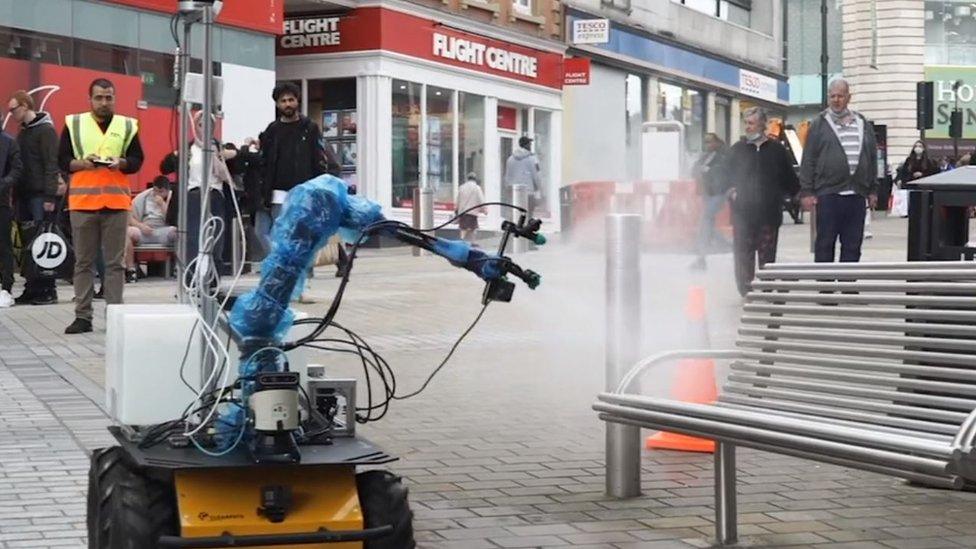
The robots identify areas that need sanitising before spraying a fine mist
Robots are being trialled to see how effective they can be in disinfecting items and public areas in the fight against coronavirus.
The University of Leeds is using robots to help sanitise parts of the city centre and Leeds Bradford Airport.
Meanwhile, an engineering firm is working with a supermarket chain to trial an automatic trolley wash.
The schemes aim to reduce the risk of Covid-19 transfer to both cleaning staff and the public.
The robots being used in the city centre and the airport were originally designed to inspect, and conduct repairs on, infrastructure such as pipes and bridges.
They were developed by researchers in the Self Repairing Cities project, a consortium involving the University of Leeds and Birmingham, and University College London.
Adapted to combine navigation, computer vision and artificial intelligence, they find objects which need regular cleaning and then spray a mist of diluted alcohol over them.
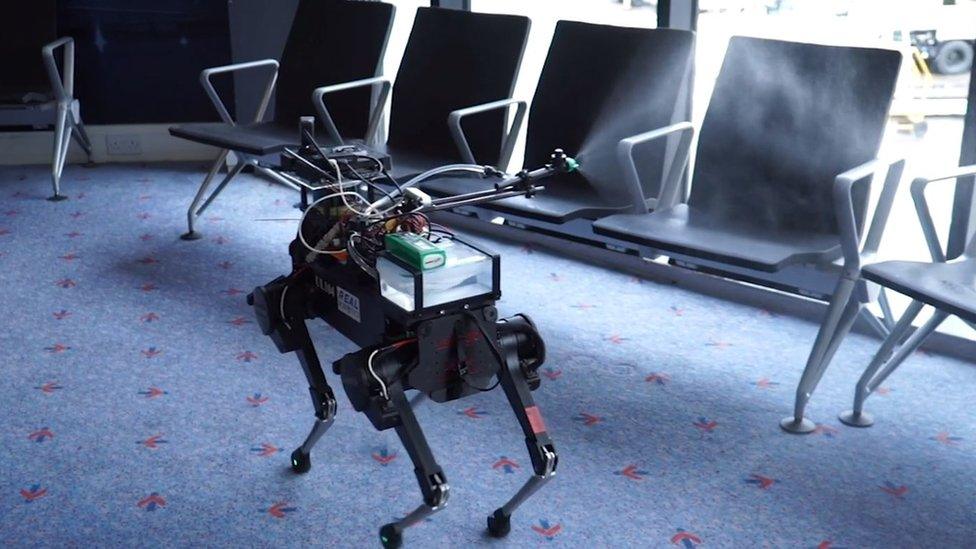
The idea is to reduce the risk of contamination to cleaning staff
Dr Bilal Kaddouh, assistant professor at the Leeds School of Mechanical Engineering, said the trials had gone well.
"The robots were able to identify the objects that they needed to clean, and they were able to manoeuvre in the public spaces.
"The robotic arms effectively delivered the disinfectant on to the target surfaces."
The next stage will be to have the robots work autonomously, he said.
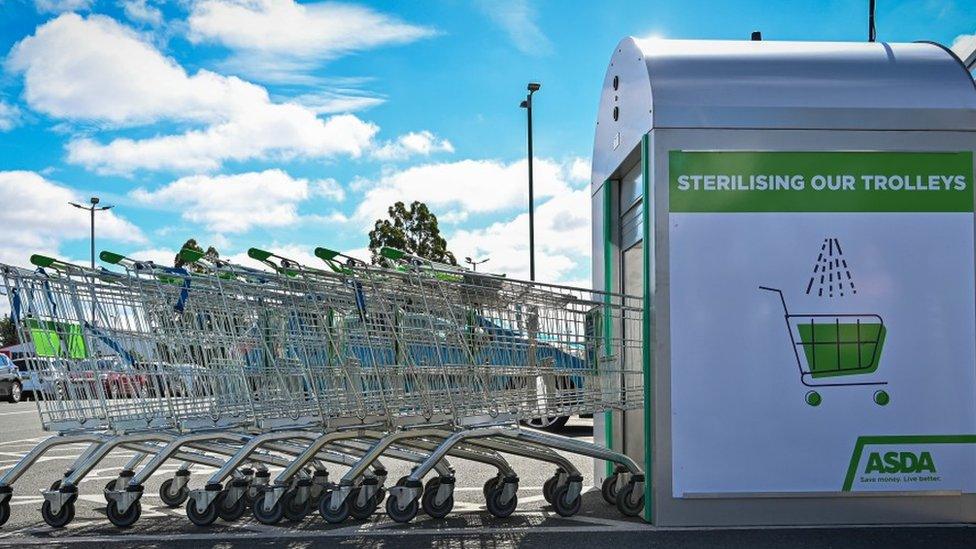
Touch points on trolleys are thoroughly disinfected without the need for employees to clean them
The trolley wash is being tested at Asda's store in Morley, the company said.
Developed by the WasteCare Group, the unit works by coating trolleys with fine particles containing an anti-microbial solution.
It is waterless, using an electrostatically charged mist to ensure all touch points are thoroughly sterilised.

Follow BBC Yorkshire on Facebook, external, Twitter, external and Instagram, external. Send your story ideas to yorkslincs.news@bbc.co.uk or send video here.
- Published27 July 2020
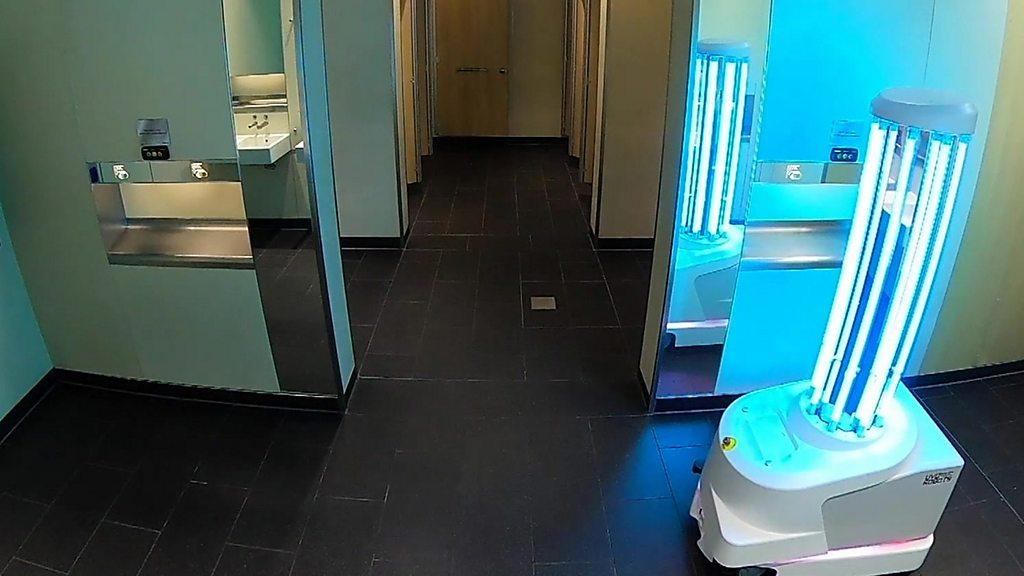
- Published6 July 2020
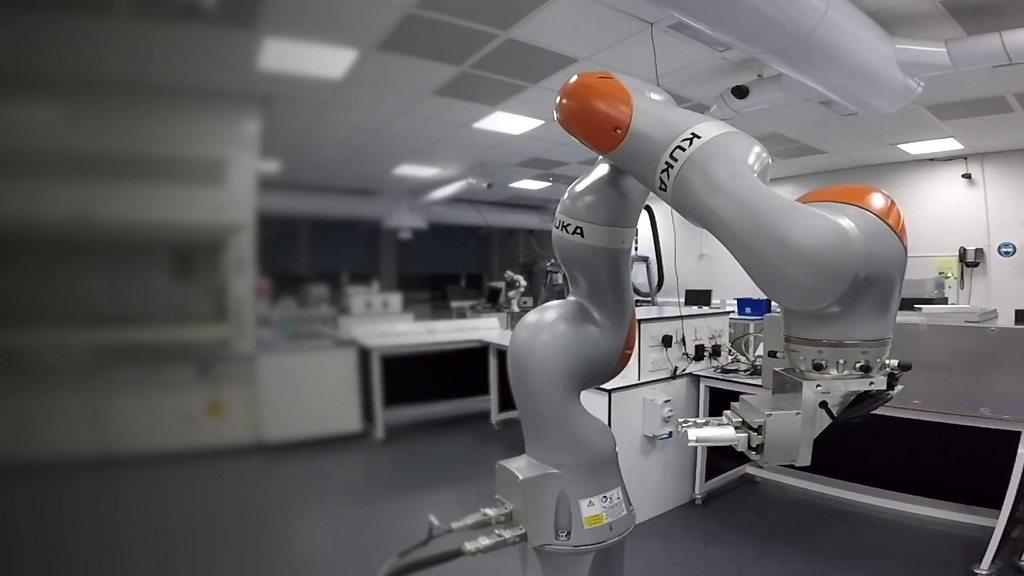
- Published1 April 2020
